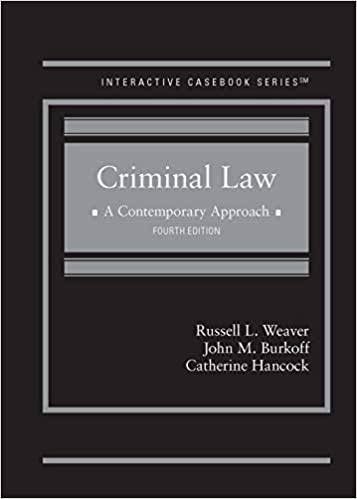Question
As some of you may recall, before the U.S. sent troops to Iraq in 2003, Congress gave President Bush authorization to do so. The White
As some of you may recall, before the U.S. sent troops to Iraq in 2003, Congress gave President Bush authorization to do so. The White House has always maintained that such Congressional authorization was an unnecessary "rubber stamp" and that it was seeking the approval of Congress not because it had to, but because it wanted to. This is nothing new. No president has ever admitted that Congress has the authority to stop him from sending troops abroad to defend U.S. interests. Congress has seen it somewhat differently, however. In 1973, Congress passed the War Powers Resolution (50 U.S.C.S. 1541-1548). Although it recognized the president's power to send troops in an emergency without Congressional consent, this Act required the president to get Congressional approval before leaving the troops overseas for an extended period. It also imposed certain reporting and other requirements on the commitment of troops. Since the War Powers Resolution was passed, no president has acknowledged its validity, as every president has thought that the Resolution infringes on the president's power as Commander-in-Chief of the Armed Forces. Congress has rarely tried to enforce the War Powers
using case law, find out how courts have handled it when people have tried to enforce the War Powers Resolution against the president. Please write an essay to this effect, making sure to cite appropriate case law.
Step by Step Solution
There are 3 Steps involved in it
Step: 1

Get Instant Access to Expert-Tailored Solutions
See step-by-step solutions with expert insights and AI powered tools for academic success
Step: 2

Step: 3

Ace Your Homework with AI
Get the answers you need in no time with our AI-driven, step-by-step assistance
Get Started


